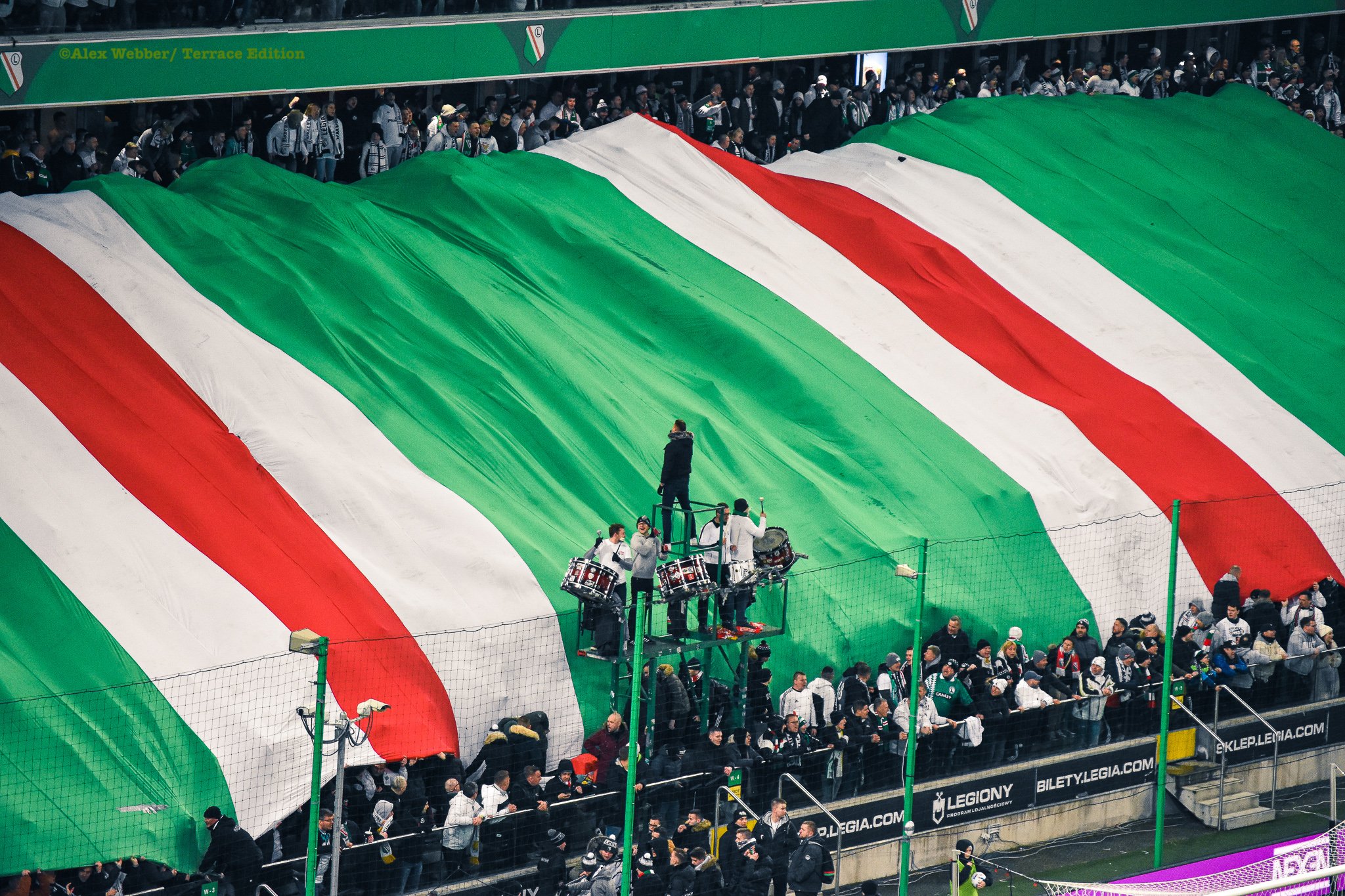Fog of war

Words: Alex Webber
Images: Alex Webber
Poland’s football calendar presents some keenly contested games – some big, and some even bigger. And then, looking down on pretty much all of them, there’s Legia Warsaw versus Widzew Lodz – an operatic epic of venom and spite.
To explain the significance of this fixture is, largely-speaking, an exercise in futility – it’s a tie you need to see, hear and, above all else, feel for yourself. And yes, feel it you will: with the air hanging heavy with sirens and smoke, just approaching the ground leaves no doubt as to the importance of it all.
The hate is palpable.
©Alex Webber/ Terrace Edition. Legia Warszawa.
Widely recognized as among the most heated rivalries in the country, it’s a tie with a textured complexity that goes beyond the mere matter of football. Of course, not that this can be overlooked.
Founded under the auspices of the Polish army, for decades Legia enjoyed barely concealed favour over all of the rest.
Still, this was not enough to temper the rise of Widzew, a club whose finest chapter was written in the early 80s with European Cup victories over Liverpool and United. But whilst their star may have faded, the brand never did, and in the years since Widzew have enjoyed a numerical support that’s envied by most in the country.
©Alex Webber/ Terrace Edition. Legia Warszawa.
For their part, in the meantime, Legia have cemented their place as the moneybags of Poland: the team that’s won it all before doing it all again.
But in between all of that, have been a string of dramas that have served to shape the colour of this tie – from scandalous, league-deciding fixes, to pitch battles that better bring to mind comparisons to Agincourt.
Yet saliently, this game is more than just Legia v Widzew. It is Warsaw versus Lodz: the affluent capital pitted against a gritty factory town commonly nicknamed ‘the Manchester of Poland’.
©Alex Webber/ Terrace Edition. Legia Warszawa.
Having spiralled down to the fifth tier following a financial cataclysm, Widzew’s climb back to the top echelon of Polish football had been long and challenging, but here they were once more, playing at Legia’s Lazienkowska ground for the first time in a decade.
So, set to this background, there was a football match to watch – albeit in fleeting glimpses captured beneath the fog of war. Presenting a stunning flag drop on the first whistle, Legia’s fans set the ball rolling with a floor to ceiling banner depicting ‘the torch lady’ found on the Columbia Pictures logo.
Crowned with a rooftop pyro show coordinated so as to parody the effect of a flaming torch, this was a scintillating display finely complimented by a second half fusillade of over 300 flares. Paired with a solid wall of unrelenting din, this was nothing if not a ferocious demonstration of Poland’s football passion.
©Alex Webber/ Terrace Edition. Legia Warszawa.
With much of their own pyrotechnical arsenal confiscated on entry, Widzew’s corner of the ground should have struggled to be heard, but instead they rose to the occasion with their own swell of noise and flashing, blinking strobes.
Twisting and turning to a thrilling 2-2 conclusion, the word breathless should spring to mind.
As sanitised and diluted as Poland’s top flight has become, this full-throttle evening shall not be forgotten.
©Alex Webber/ Terrace Edition. Legia Warszawa.
©Alex Webber/ Terrace Edition. Legia Warszawa.
©Alex Webber/ Terrace Edition. Legia Warszawa.
©Alex Webber/ Terrace Edition. Legia Warszawa.
©Alex Webber/ Terrace Edition. Legia Warszawa.
Alex’s website can be found at www.alexwebber.life














